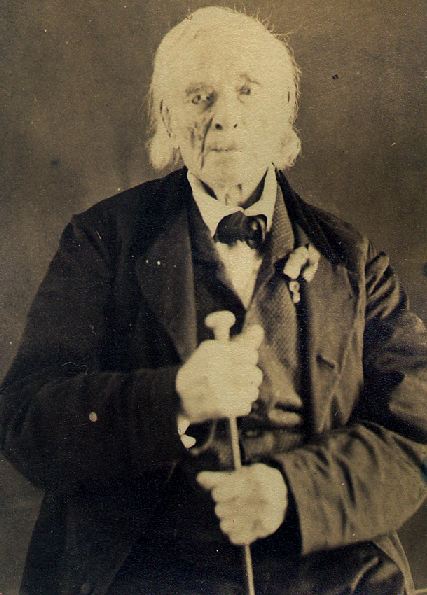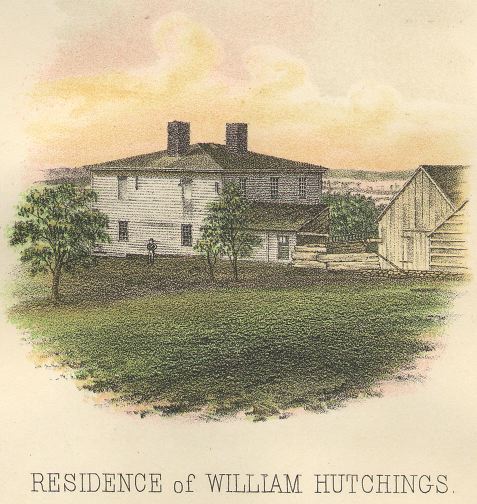Contents

Contents
WILLIAM HUTCHINGS, whose photograph is the fifth in the series, was born in York, York County, Maine, (then Massachusetts,) in 1764. He is, therefore, in his one hundred and first year.
Mr. Hutchings’ connection with the war of the Revolution was but limited. He enlisted at the age of fifteen for the coast defense of his own state; and this was the only service in which he was engaged during the war. The only fighting that he saw was at the siege of Castine, where he was taken prisoner; but the British, declaring it a shame to hold as prisoner one so young, promptly released him.
His pension, until the late addition to it, was only twenty-one dollars and sixty-six cents. The father of Mr. Hutchings had in his early manhood been familiar with military service, having served in the French War and been engaged in the siege and capture of Louisburg. In his old age he used to say that he had served under George II., George III., and also under George Washington, and was ready to serve under Madison. He lived to see his descendants of the fifth generation, by some of whom he was followed to the grave. At the time of his death, there were living, of those who derived their life through him, ten children, eighty-eight grand-children, two hundred and thirty-five great-grand-children, and seventeen great-great-grand-children, – in all, three hundred and fifty.
At the time of the capture of Louisburg, he was a youth of only sixteen years of age, having been born in 1742. In 1768 he moved with his family from York to Penobscot – William, the subject of our sketch, being then four years old.
The region at that time was mainly a wilderness, Mr. Hutchings, senior, being one of the earliest settlers in it. Here he remained for ten or twelve years, clearing a farm and establishing a home under the usual conditions of hardship and suffering incident to pioneer life. His son still recalls those experiences of childhood in his father’s house. At times, he says, they were scarcely able to obtain food enough to satisfy the cravings of hunger; and he has dug clams for their meal, when he was obliged to stop and rest while at his work from faintness through want of food. They were finally, however, beginning to live comfortably when the British took possession of the neighboring town of Castine, and drove his father from his home, who fled with his family to Newcastle, where he abode till the close of the war, while William remained to fight the foe.

Shortly after the close of the war, Mr. Hutchings was married, at the age of twenty-two years. As the fruits of this union, there were born to him fifteen children, all but one of whom lived to be married. He has been throughout life an early riser and a hard worker; not particularly regular in his habits, often going without food till he could get what he relished; especially, living near the sea, and being fond of seafood, delaying his meal until it could be procured. He smokes regularly, and uses spirituous liquors moderately. His mind is still vigorous, though his body is feeble. Memory is good, retaining dates especially, so that he is a referee in the family in matters of history. He is deeply interested in the present conflict, his whole soul being enlisted in the cause of his country. Speaking of General Grant and his prospects of success in his campaign against Richmond, he concluded by saying, “Well, I know two old folks up here in Maine who are praying for him.”
He has lost four or five grandchildren in the war.
His views on the subject of slavery are radical, he declaring that “God will never suffer it to exist in this country”
The old man now lives in the house which he himself built. It stands on an elevation at the head of Penobscot Bay, surrounded by the rugged headlands of the region, above which, seaward, in the distance, rise the blue peaks of Mount Desert; while in the hollow of the hills beneath quietly ebbs and flows the never-resting sea.

